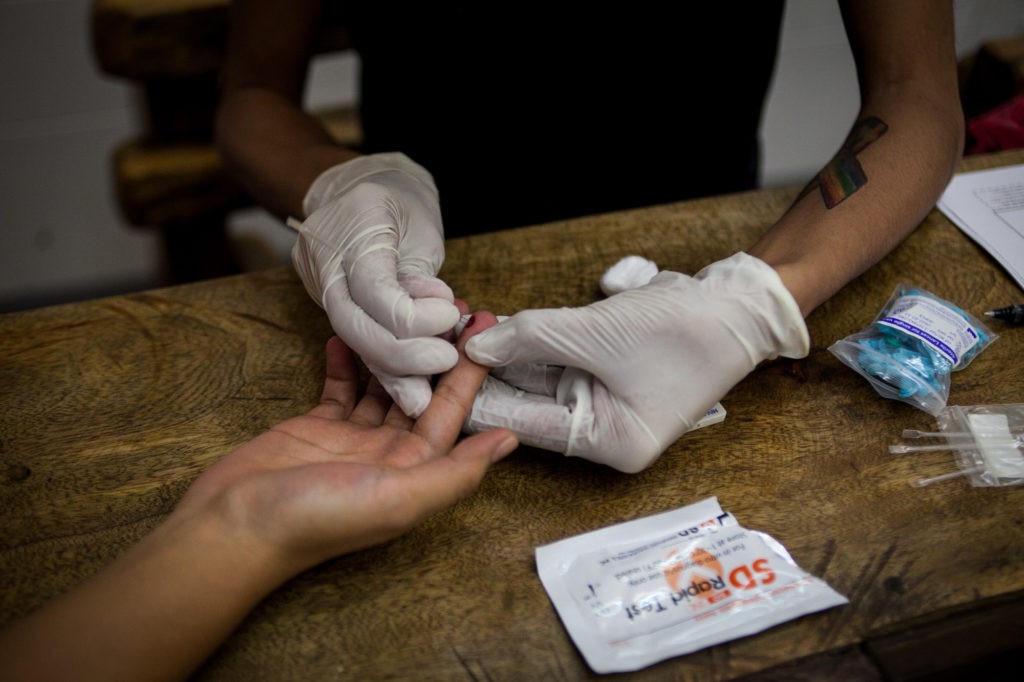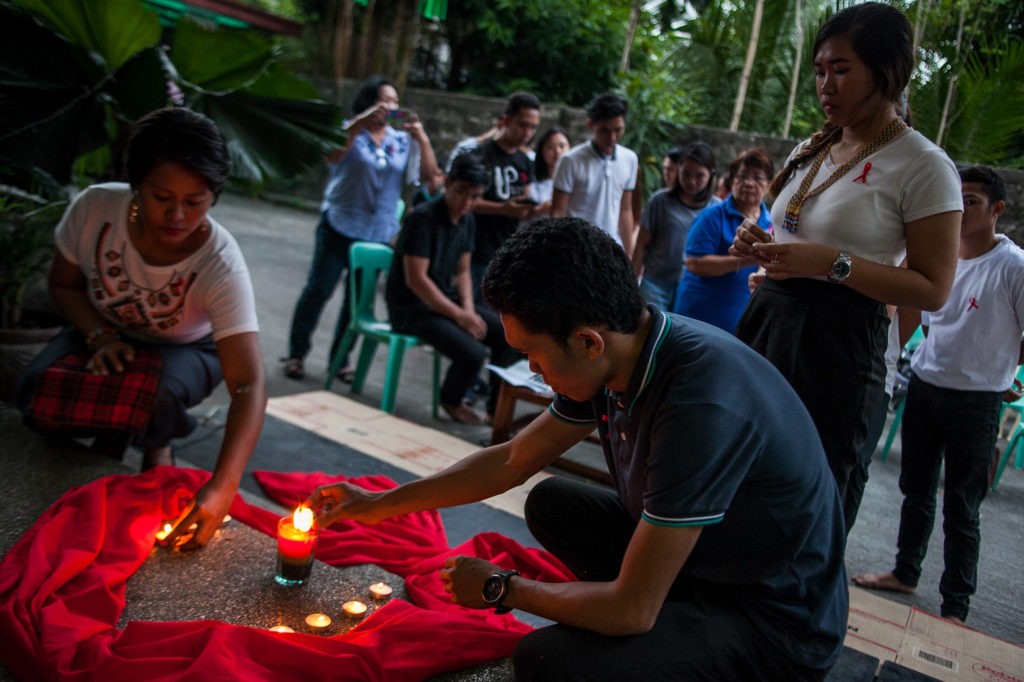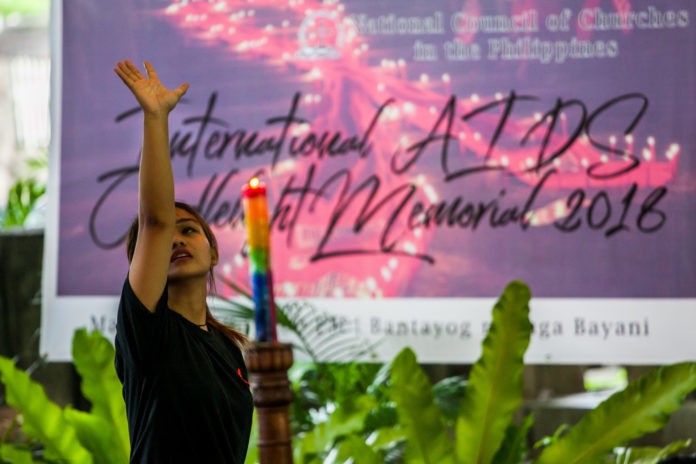An antiretroviral therapy is the only way to save Jason, a one-year old boy with human immunodeficiency virus or HIV, but the odds are not in his favor these days.
“My problem is that I don’t think we have the luxury of time,” said Leonora, Jason’s 60-year old grandmother.
“My grandson needs treatment as soon as possible. His body deteriorates each day that passes by,” said the grandmother.
She has to wait until the new coronavirus pandemic is over before she can bring Jason to a hospital for treatment.
On March 17, the Philippine government placed the entire Luzon island under an “enhanced community quarantine” to arrest the spread of the disease.
“I am afraid that if this situation prolongs, my grandson won’t have the fighting chance, like what happened to his parents,” said Leonora.
In September 2018, Jason’s father was diagnosed with the Acquired Immunodeficiency Syndrome or AIDS and died on Jan. 9, 2019.
Jason’s mother, who was 29 years old when she was diagnosed with HIV, died exactly a year after her husband’s death.
Both parents were not able to undergo an antiretroviral therapy, which can help keep reduce the effect of the virus on a person living with HIV.
On March 30, Jason’s uncle visited the hospital where his nephew had a medical test earlier in the month but was told that the HIV confirmatory test results were not yet available.
A LiCAS.news source in the medical community said one of the problems that government hospitals face is the lack of personnel to handle laboratory tests for illnesses other than for COVID-19.
“Most medical technologists and laboratories, if not all, in these institutions are prioritizing the COVID-19 tests,” said the source.

Loss of livelihood
Donita and her husband are both persons living with HIV and have been undergoing antiretroviral treatment for five years now since they were diagnosed in 2015.
“We received our medicines last month. It covers the next three months so we have nothing to worry about,” said Donita.
She said the social hygiene clinic where they get their treatment continues to operate amid the pandemic.
The 40-year old housewife is five-month pregnant with their ninth child. Her husband is a driver but lost his job since the lockdown.
“It was our only source of income,” she said. “Apart from food and other basic needs, our problem now is the laboratory tests for my baby,” said Donita.
She has to undergo some tests to determine the viral load in her body and to check if the baby is well. She needs at least US$200 for all the tests that the doctors require.
The couple is reluctant to seek help from relatives and friends. “Not everyone knows that we are living with HIV,” said Donita.
Donita admitted she was traumatized by how her husband’s family treated them after revealing their condition. “Now I am afraid to open up to anyone,” she said.
Discrimination
People living with HIV and AIDS face discrimination and threats because of the stigma, which Protestant Pastor Carleen Nomorosa described as “deadlier than the COVID-19 or HIV.”
“It is discrimination and stigma that kill people living with HIV, not the disease itself. They are forced to hide and decide not to seek help because of it,” she said.
Nomorosa, who is the HIV program coordinator of the National Council of Churches in the Philippines, said duty-bearers should continue to attend to people suffering from other sicknesses despite the threat of the COVID-19 pandemic.
“We are now focused on how to battle the coronavirus disease but we should not forget that there are people, who are not COVID-19 patients, who need medical services,” she said.
Nomorosa called on the government to widen its services for HIV patients “such as financial aid to displaced persons with HIV and their families due to the pandemic.”
She also called for strict implementation of laws that protect people living with HIV and for the government to provide health and testing facilities to cater to other diseases aside from COVID-19.

On March 21, the country’s Department of Health assured people living with HIV of medication and access to antiretroviral drugs even in the midst of the lockdown.
Health authorities ordered treatment hubs and primary HIV care facilities “to exhaust all possible means” for people living with HIV to have reliable access to treatment.
Among the proposed measures was the use of courier services to access the antiretroviral drug during the lockdown period.
As of December 2019, there were at least 42,731 Filipinos who were enrolled under the Anti-Retroviral Treatment.
The World Health Organization said that there is currently no proof that people living with HIV are at an especially increased risk of containing COVID-19.
WHO, however, stressed that it does not mean that HIV patients should not take extra precautionary measures against the threats of the new virus.
For Leonora, the fear of losing her grandson makes her anxious and worried every time she sees him suffering.









